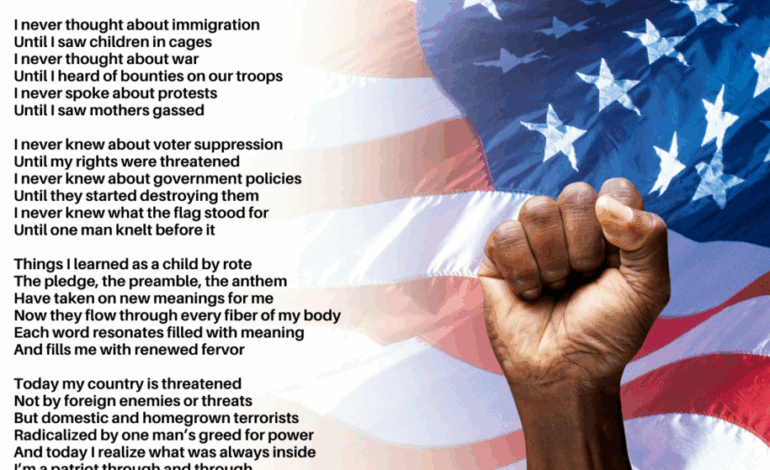Critique of Promised Freedom Reveals Harsh Realities

A powerful critique of the American narrative surrounding freedom and equality was presented by poet Muriel Vieux in her recent work, “We Told the World.” The poem, published on November 17, 2025, explores the stark contrast between the ideals of liberty and the reality faced by many, particularly marginalized communities.
In her poignant verses, Vieux reflects on the promises of the American Dream, asserting that society has perpetuated a façade of opportunity. The poem begins with an assertion that dreams are attainable for all who dare to pursue them. However, it quickly transitions into a sobering reminder that these promises often remain unfulfilled. The imagery of “picket fences, equality, wealth, and fame” paints an idealistic picture, while the reality reveals a much harsher truth.
Vieux’s work highlights the significant dissonance between the welcoming narrative of freedom and justice and the treatment of those who seek refuge. She writes, “We put them in cages and stole their children,” a stark indictment of policies that have led to widespread suffering among immigrants and their families. This line captures the deep emotional impact of systemic failures in providing genuine safety and belonging.
The poet further critiques the broader societal implications of these broken promises. “Today our picket fences are electrified wires,” she states, illustrating the transformation of a once-inclusive society into one marked by division and fear. The juxtaposition of neighborly bonds turning into animosity reflects a growing distrust within communities.
As Vieux delves deeper, she addresses the role of leadership and governance. She describes leaders as being “born in our lies and broken promises,” suggesting that the current political landscape is a direct result of long-standing deceit and failure to uphold the principles of liberty. The poem invokes a sense of urgency for collective reflection and action, urging readers to confront the realities behind the rhetoric.
Vieux’s poignant words resonate with many who feel disillusioned by the disparity between the ideals of freedom and the lived experiences of countless individuals. The call for accountability is clear, as she emphasizes the need to dismantle the structures that bind freedom and silence equality.
In conclusion, “We Told the World” serves not just as a critique but as a rallying cry for change. It urges society to re-examine its values and commitments to justice and equality. As Vieux eloquently captures, it is essential to move beyond the comforting narratives and confront the truths that have long been obscured. Through her poetry, she challenges each of us to reflect on our roles in creating a more just world for all.






